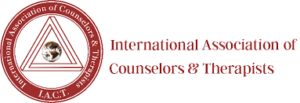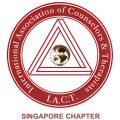Practising Licence Programme: Reading Therapist (ONLINE)
This programme aims to qualify any trainee who has passed all the programme’s requirements of the International Association of Counselors & Therapists (IACT) and be admitted as a licenced reading therapist. A reading therapist is expected to understand about literacy and language difficulties, disabilities and disorders faced by the children and their different challenges in reading, comprehension, writing and spelling processes. The processes include phonological (from letters and words to sentences), morphological (from phrases and clauses to sentences), semantic (from affixes and root words to discourse) and syntactic (grammar, text types and genres) processing and skills. The candidate will also be practising about the using different tools and protocols for screening, informal & standardised assessment, evaluation and profiling of children with language difficulties together with intervention planning and procedures.
This programme equips participants with specialised expertise to address profound literacy challenges in school-age students stemming from developmental, cognitive, and neurological differences. By blending cutting-edge literacy science with hands-on practical skills, graduates emerge as licenced professionals capable of delivering evidence-based screening, assessment and intervention strategies for reading and literacy disorders, including dyslexia, dysnomia, hyperlexia, cacographia, dyscalculia, dysgraphia and dysorthographia, that go beyond traditional instruction. This enables trainees to make a meaningful impact on students who often slip through the cracks of standard education systems.
The programme provides comprehensive training to support diverse school-aged students with developmental language delays affecting speech, comprehension, and expression. Participants will gain practical competencies for working with multilingual individuals with complex literacy needs and those requiring augmentative communication. Trainees will also master clinical reasoning to interpret student profiles, identify processing weaknesses, and design targeted interventions that foster genuine progress. Additionally, trainees will become confident using hands-on assessment tools such as the Ekwall-Shanker Reading Inventory, Bader Reading and Language Inventory, Neale Analysis of Reading, Renfrew Scales, and error-pattern & miscue analysis.
The IACT is a prestigious professional body based in the USA that admits any person who have fulfilled the rigorous requirements of the practising licence programmes to obtain practising membership as a counselor or a therapist. The membership with the IACT is a mark of high standard and excellence. Practising members are not only knowledgeable and bound by high ethical standards, but are also highly respected as well. They are eligible to work in many countries such as North American, Asian and European countries etc.
The three tiers of the IACT’s practising licence are Credentialed, Registered, and Board-certified. Board-certified members hold the highest status of the membership of the IACT.
As a requirement of the IACT, all courseworks, assignments and essays of a trainee must be supervised and verified by an approved instructor of the IACT. All works of the candidate are required to be submitted by the instructor to the IACT’s Assessment Board based in the USA for final assessment.
Merlion Academy is authorised to supervise and verify the trainee’s work seeking to gain admission as an IACT member. Trainee will also be supported by the both the IACT Singapore and Malaysia chapters. Trainees could be admitted as a full member of the Literacy and Reading Therapies Association Singapore, upon completing and fulfilling the requirements of the Credentialed tier.
Admissions for the programme are conducted on a rolling basis.
An IACT qualified reading therapist who wish to practise as a special needs educational therapist is required to take two additional top-up modules.
Course Modules:
- Module 1: Foundations of Reading Science
- Module 2: Developmental Reading Disorders
- Module 3: Introduction to Reading Assessment
- Module 4: Structured Literacy Intervention I
- Module 5: Professional Practice and Ethics
- Module 1: Advanced Reading Assessment & Diagnostics
- Module 2: Neurological Disorders Affecting Reading
- Module 3: Structured Literacy Intervention II
- Module 4: Reading Therapy for Multilingual and Culturally Diverse Learners
- Module 5: Case Conceptualization & Clinical Decision-Making
- Module 1: Research Literacy & Evidence-Based Practice
- Module 2: Reading Therapy for Severe and Complex Profiles
- Module 3: Neuropsychological Integration in Reading Therapy
- Module 4: Supervision, Consultation & Advanced Ethics
- Module 5: Capstone Project & Clinical Portfolio

Assessment:
1. Assessments are assignments based, mainly submission of publishable journal articles and papers.
2. Guided learning hours to fulfil: 30 hours per module (150 hours in total).
3. Non-guided learning hours (reading time and journal papers writing for publishing): 30 hours per module (150 hours in total).
Practicum:
220 hours of internship under clinical supervision at a counseling center, therapy clinic, school or hospital would be required at the completion of Registered tier qualification.
Duration:
8 months per tier
Entry Requirements:
Age
21 years and above
Minimum qualification
Minimum a diploma in any major
English requirement
1. IELTS 7.0 (reading and writing must be at 7.0); or
2. A grade of B3 in English Language paper at GCE Ordinary Level; or
3. Equivalent (Pearson English Test, TOEFL).
Course Fees:
(Non-refundable one-time application fee of SGD 95.00 is payable upon application)
Program fee
SGD 1,500.00 per module
Marking fee
SGD 50.00 per module
Payment mode
Stripe / Credit card / Alipay
Refund Terms
90% – more than 28 days before course commencement
50% – less than 28 days before course commencement
10% – less than 3 days before course commencement
0% – more than 3 days after the course commencement



